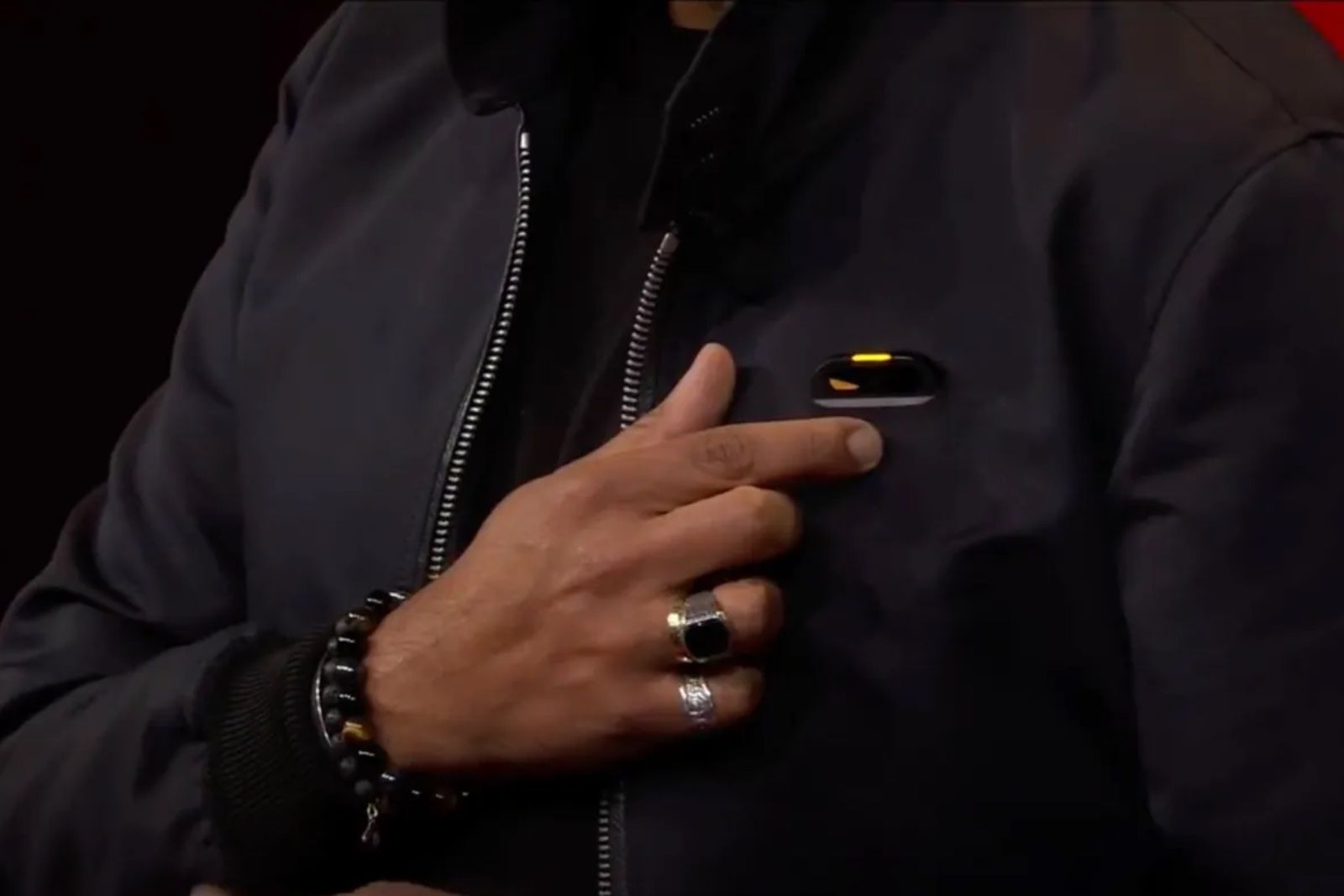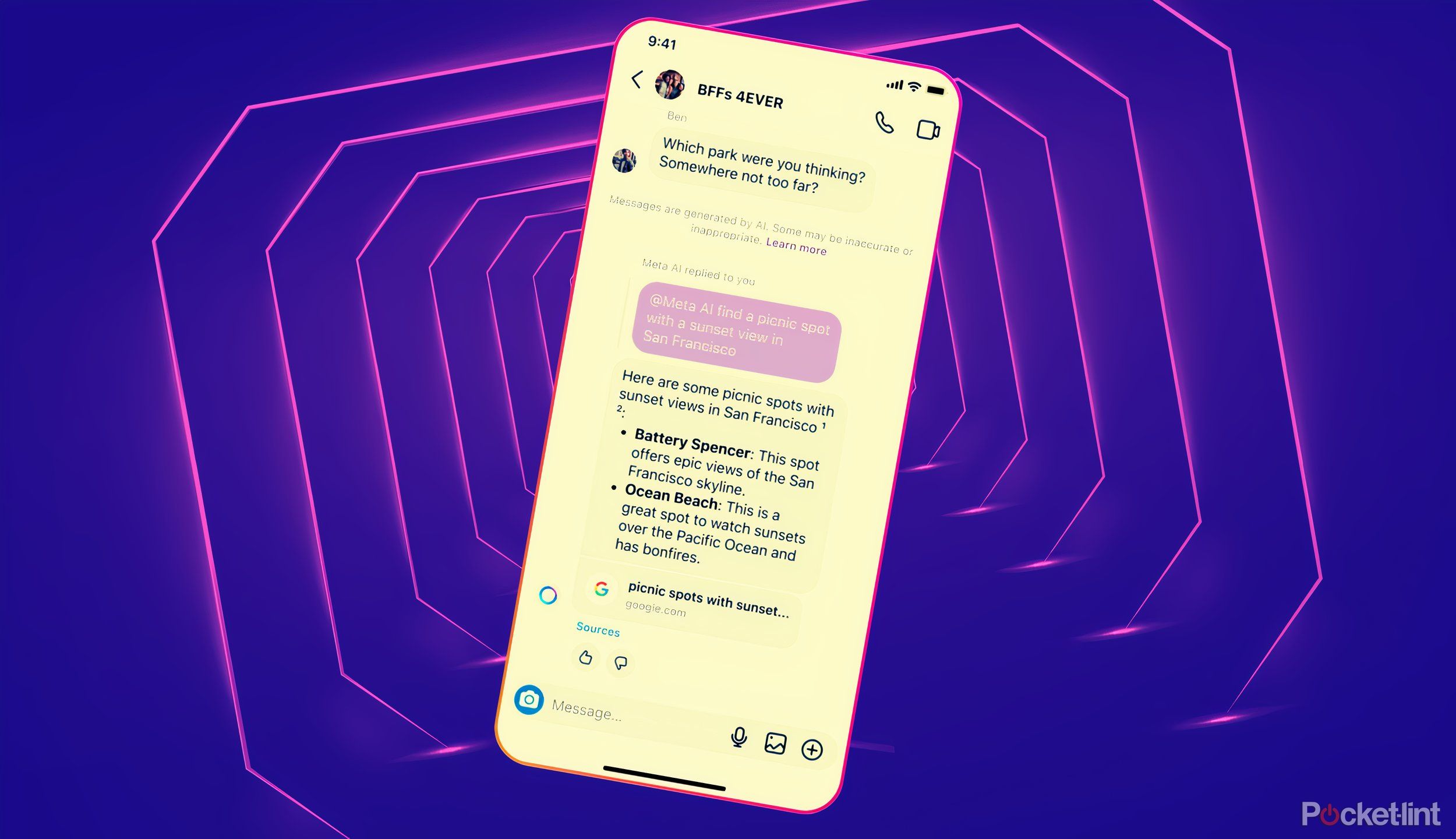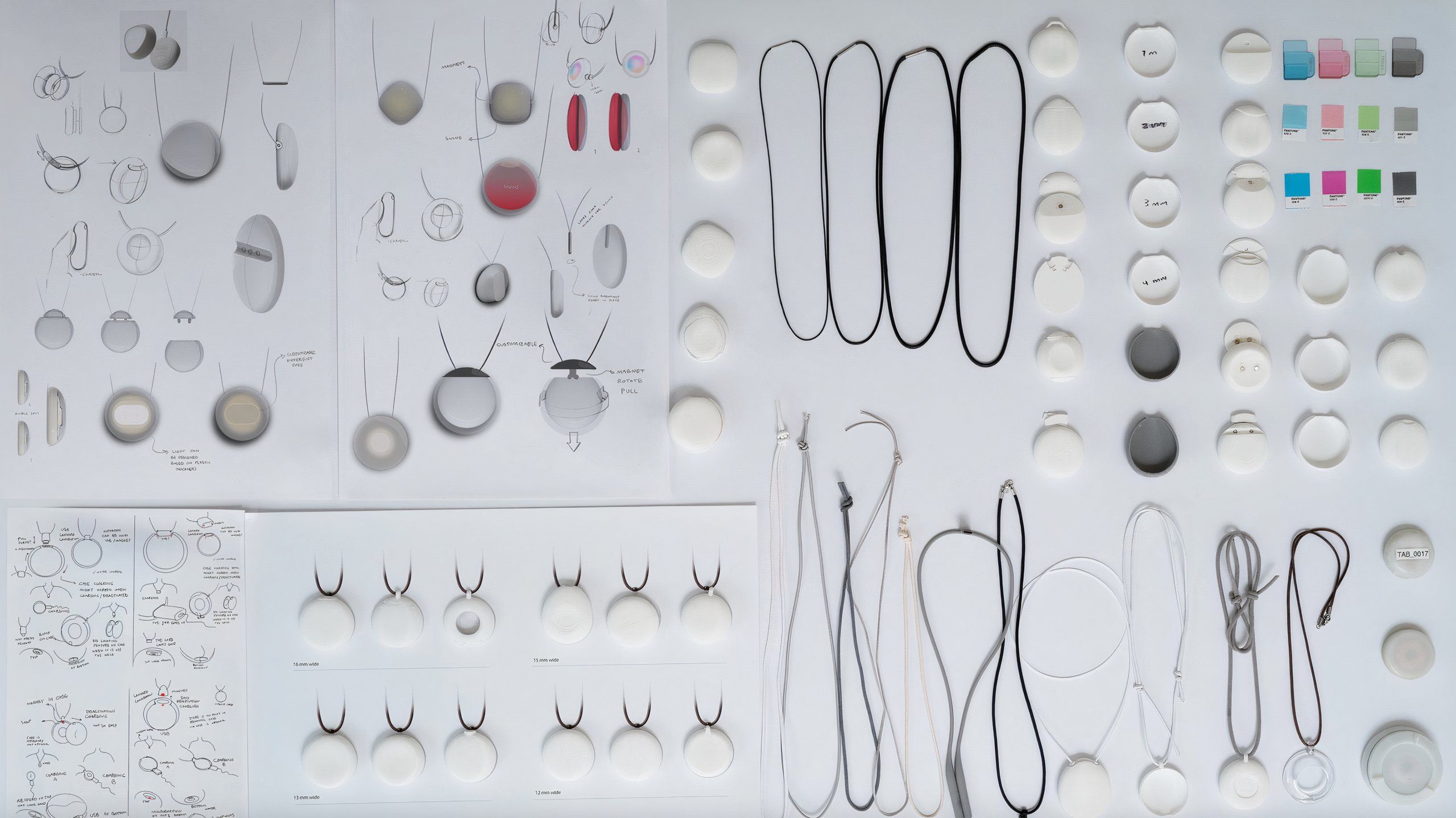Key Takeaways
- Friend is an AI-powered pendant designed to be talked to.
- It one-ups normal AI chatbots by including an always-on mic that lets it listen to your day (and invades your privacy).
- An always-present, reassuring friend really isn’t how real-life friendship works.
Generative AI has been great at convincing people that software is smarter than it is, largely by talking and writing convincingly like a real person. Even if it hasn’t produced factually accurate or reliably useful products, it has broadly opened up the conversation around what technology should look like and how we should interact with it. Case in point, Friend.
Friend is a recently announced AI-powered necklace that you can use to talk to and confide in. The extra spice Friend offers over your vanilla ChatGPT or Claude chat is that it could theoretically also comment on things you’ve experienced or moments it’s “overheard” completely unprompted, making the AI more of an active participant in your life.
The reactions to this $99, subscription-free gadget outside the world of AI enthusiasts has largely been negative. Even if you look past the provocative name (the domain “friend.com” reportedly cost $1.8 million, 404 Media reports), I easily understand why people are uncomfortable with the idea of talking to a computer about just about anything personal. But I think the problem with Friend and other AI companions like that is something much more fundamental. They misunderstand what friendship is from the jump. And that’s the reason Friend isn’t dystopian in the way many suggest and will probably be compelling all the same.

Related
This Star Trek-like combadge could be your next essential gadget
We live in the future and Humane’s new combadge proves it.
Friend is the melding of a hot mic and an AI model
Privacy is possible, but not really the point
Friend was created by Avi Schiffman and started its life as a more productivity-oriented device called Tab. That first version was capable of extending your memory and giving you insights into the things you experienced throughout the day, and was meant to be worn around your neck in much the same way as Friend.
The privacy implications of a mic that records all of your personal and public interactions is enough to make anyone’s hair stand on end.
And that’s because Tab is also an always-on microphone, recording and analyzing everything you do throughout the day, creating transcripts, reminding you of things you’ve said, and even coaching you through your day. According to Wired, Schiffman was frustrated by the shortcomings of that idea, and found something stickier in a product purely focused on keeping you company. Friend is still an always-on mic, it’s just shaped like a glowing AirTag, with some added friction in the form of a button to press when you want to talk to Friend directly.
The privacy implications of a mic that records all of your personal and public interactions is enough to make anyone’s hair stand on end. Friend claims that all recordings are encrypted, and you can delete any audio file your Friend has recorded whenever you want. The thing is, though, even end-to-end encrypted data finds a way of getting out if people — typically law enforcement — really want it. So it might be hard to feel completely comfortable with Friend listening 24/7.
Friend / Pocket-lint
That live microphone is a key component to Friend’s appeal. Enabling it to feel deeper and more engaging than the stilted back-and-forth you may have had with a normal AI assistant. Its live quality lets the necklace behave more like a friend who is right there with you, gossiping with you discretely under the table. At least based on the reveal video Schiffman posted, your Friend will even message you with a human name like “Emily” or “Jackson.”
Contrast that with a product like Dot, an AI-powered app which similarly provides a form of companionship, but with an emphasis on personal insight and memory. Dot only knows what you message through its app. You can connect it to your calendar and give it your current location, but beyond that, it’s more of a journal that talks than something masquerading as a living thing. It’s system of “Chronicles,” essentially summaries of topics and conversations you’ve had with the chatbot that make it a record of the things you’ve said. That gives Dot a utility that it’s not clear Friend is even designed to have.
Friendship is a two-way street
We give and take from each other by default
The name Schiffman chose for his AI gadget, and the slightly cheeky tone of the reveal video, are designed to provoke.
It’s clear that Schulman doesn’t imagine this necklace outright replacing human beings. He told The Verge as much when he previewed the device to them, “I don’t think this should be the only person you should talk to.” But he does know people will find this mostly one-sided relationship alluring. There’s ample evidence of the attachment people form with AI relationship apps like Replika, and if anything, Friend being more “present” could make it feel even more personal.
The thing is, friendship really doesn’t work like that. No one deserves a friend who’s constantly present to reassure them and, realistically, few people who have that kind of relationship have that for the majority of their lives. That kind of encouragement and push towards personal understanding is something we pay therapists for, and they even limit sessions to 45 minutes at a time.

Related
9 Meta AI prompts I use to supercharge my chatbot experience
You’ve probably seen the Meta AI icon in your social apps, but what can it do? Try these nine things to get started.
Friends help us, love us, and humor us, but good friends usually need things from us too. Our care, our attention, our encouragement, and sometimes material help, like a place to sleep and food to eat. That’s not always easy to provide, but experiencing that challenge and the kind of unconditional love that can blossom from it is what’s rewarding about having relationships as a human. Even the most antisocial, solitary person is defined by their connections (or lack thereof) to other people. You don’t necessarily get that from an app like Dot or a wearable device like Friend. They might challenge, even push back on things you say or think, but they don’t need you, and eliminating that — turning a living, breathing friend into something that’s always at the ready — isn’t some magic bullet for destroying loneliness.
Charitably, the concern people have expressed about Friend on social media, at least the concerns that aren’t privacy focused, are grounded in that understanding. Talking to a computer isn’t enough.
There’s still a valid use for Friend
See the name for what it is — a name
The dramatic reaction to Friend, encompassing the easy shorthand that it’s just like the TV show Black Mirror or that as a society “we’re cooked,” is just as misguided as the mindless acceptance that this will be a long-term solution for lonely people. Schiffman might write that “friend is an expression of how lonely I’ve felt,” in Friend.com’s sole blog post or tell Wired, “I feel like I have a closer relationship with this fucking pendant around my neck than I do with these literal friends in front of me,” but I don’t think that means AI-generated text, delivered in a casual text message style, is going to cut it. Nor do I think many people will be convinced by it. Anyone online who does, doesn’t think very highly of the average person.
While the major players in the tech industry are focused on making AI experiences that make your life simpler and more productive, a device like Friend is a tacit acknowledgment that generative AI is probably best at low-stakes conversation and nonsense.
Take Friend’s name for an unfortunate association and not the pendant’s reason for being, and I do think there are some ways using this device could be fun. In much the same way, Dot’s conversation format prompts you to share things about your day that might not make it into a traditional journal entry or that you might not share at all, there’s a potential for Friend to do the same thing.
As human-computer interaction researcher Benjamin Searle noted on X, there is some potential value in viewing and using Friend like a “talking journal,” rather than an alternative to social interaction. “Technology is so fast and users are forced to keep up, Friend could help slow that down or to support users when they can’t slow down,” Searle writes. “Saying things out loud makes them real…just get the thoughts and emotions out in the open and you can work with them.” Speaking from my own experience, there is some power in saying your ideas out loud as opposed to exclusively writing them down, and I could see how Friend could push people towards that behavior by being more engaging than the average chatbot.
We’re still figuring out what AI is for
While the major players in the tech industry are focused on making AI experiences that make your life simpler and more productive, a device like Friend is a tacit acknowledgment that generative AI is probably best at low-stakes conversation and nonsense. That might be purely for an entertaining conversation or for more in-depth “thinking out loud,” but if there’s a use here, I don’t think it’s world-destroying one. With this limited simulation of friendship, I don’t think it could ever be.
Whether that’s worth the expense, carbon emissions, or privacy invasion of AI and a device like Friend is a separate question.





